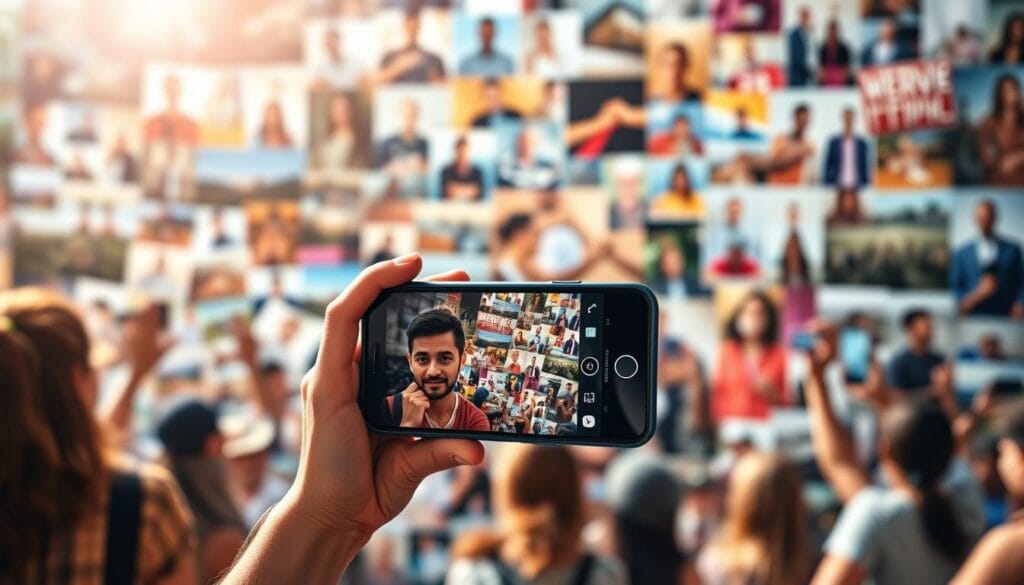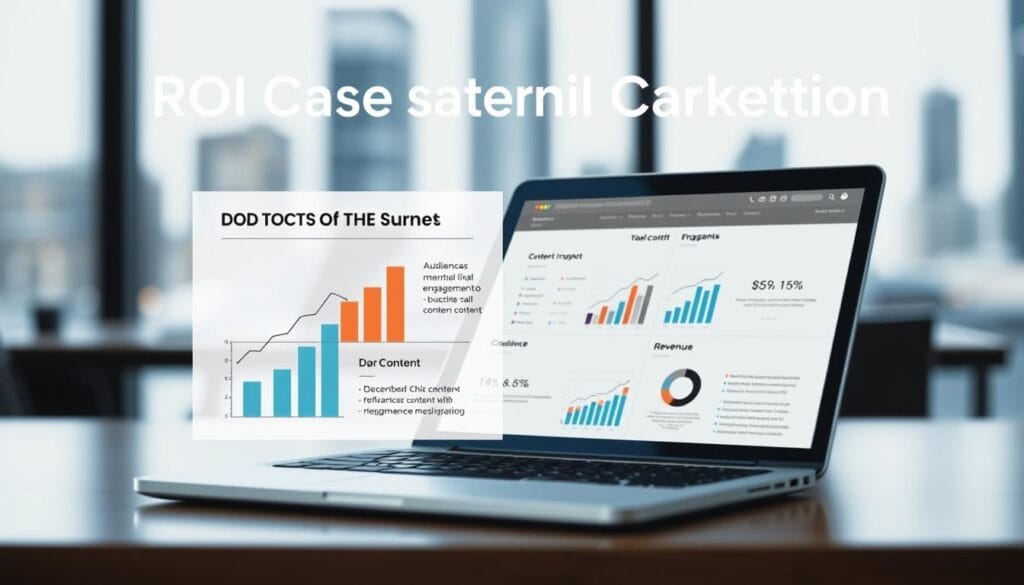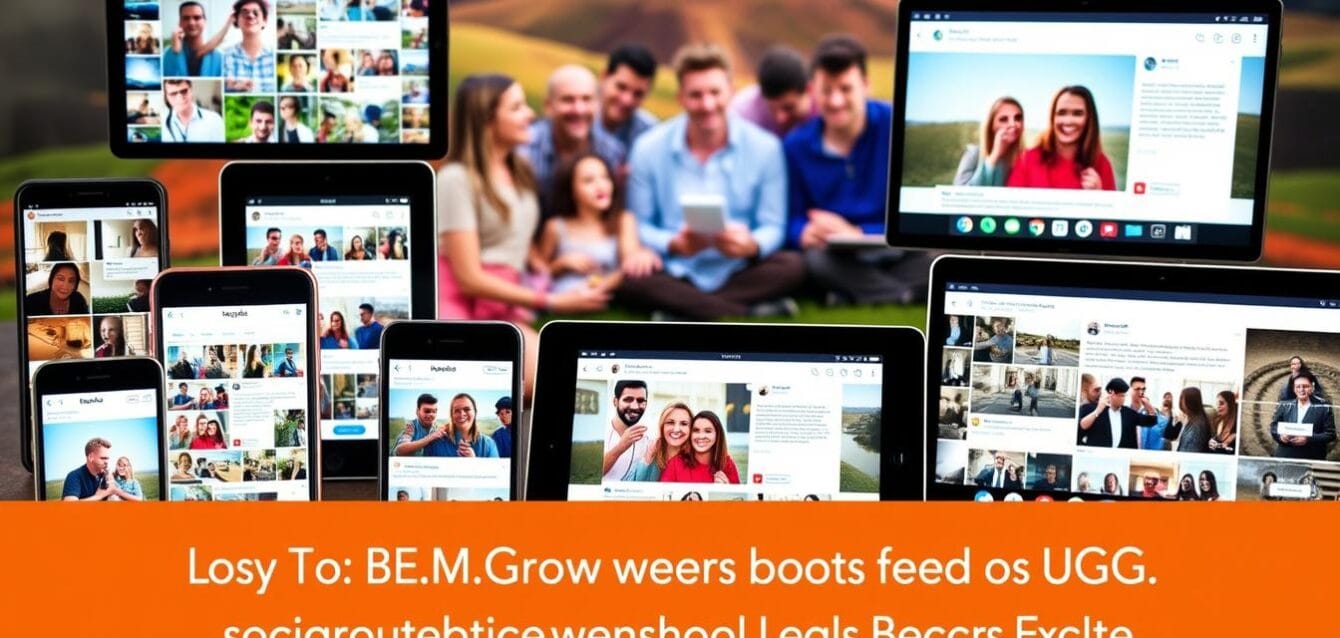92% of consumers now prefer authentic, customer-made moments over polished ads, and campaigns driven by real people lift web conversions by 29%. This shift rewrites how brands win on social media and across paid media.
We frame this guide around measurable ROI. We show how proven examples — GoPro, Starbucks, Airbnb, Samsung — turned trust into transactions. Our focus is clear: align authenticity with revenue, reduce CPCs, and boost conversion lifts across the funnel.
We act as your growth partner. We define a repeatable system that treats reviews, photos, videos, and posts as a portfolio to distribute across product pages, email, ads, and social channels. The outcome: higher engagement, lower acquisition costs, and stronger brand equity.
Macro Webber’s WebberXSuite and the A.C.E.S. Framework provide the operating system to scale this work. Markets reward authenticity now; leaders who move fast capture outsized returns.
Key Takeaways
- User Generated Content drives higher conversions, CTR, and lower CPCs when systematized.
- Integrate authentic content across channels — ads, site, email, and social — for full-funnel impact.
- Enterprise brands need governance and tooling to scale ROI; examples prove the model.
- We align UGC efforts to C-suite metrics: revenue, CAC/LTV, media efficiency, and equity.
- Act now: authenticity is a competitive lever; delay raises media costs and lost share.
The shift to trust: Why UGC is winning in the present market
Ad fatigue and rising acquisition costs have exposed a trust deficit brands can no longer ignore. Consumers tune out polished creative and lean toward peer validation. The result: campaigns built on authentic customer moments outperform brand-only messaging.
Key metrics make the case. 92% of consumers prefer authentic, user-created moments over ads. Campaigns that harness those moments can lift web conversions by 29%. Reviews matter: 47% of shoppers call peer reviews the most influential content when researching, and products with five reviews see a 270% higher purchase likelihood.
Why this works: social proof reduces perceived risk, speeds consideration, and increases intent. Reviews, photos, and videos earn attention at awareness, validate at consideration, and close buyers at decision.
- Media efficiency: Ads using real customer clips raise engagement and lower CPCs.
- High-ticket buys: Believable proof provides context and outcome, essential for premium sales.
- Scale safely: Continuous sourcing, curation, and governance protect brand equity.
We can audit your trust assets and identify quick-win integrations that lower acquisition costs and lift conversion.
What is UGC, really? Clear definition and scope across social media channels
Authentic consumer moments are the raw material of modern brand storytelling. We define user-generated content as original, brand-specific media published by real customers, brand loyalists, employees, and professional creators across social media channels and owned destinations.

From reviews to videos: core formats and use cases
Formats include: reviews and testimonials, photos, short and long videos, social posts, blog posts, and podcasts.
Why it matters: reviews validate products; photos and videos demonstrate outcomes; posts seed discovery; blogs add depth for research-stage buyers.
Who creates it: the creator ecosystem
Creators span customers who buy, brand loyalists who advocate without pay, employees who humanize the brand, and paid creators who produce at scale.
Governance notes: disclose paid arrangements, secure usage rights, and obtain written permission before republishing. Define tagging conventions and moderation rules to scale safely and protect brand equity.
Build systems that treat this media as an owned asset—verifiable, credited, and deployable across product pages, email, ads, and social.
User Generated Content (UGC) Marketing: Why it’s a cornerstone of modern strategy
We design systems that place credible proof where it shortens decision time and protects premium pricing.
Authenticity and social proof accelerate buyer confidence. Eighty-four percent of people trust a brand more when its campaigns show real customer moments, and 77% are likelier to buy products discovered that way. For luxury and high-ticket brands, this social proof reduces perceived risk and validates price points.
Scalable pipelines beat big-production costs. A steady flow of customer media lets teams redeploy budget into growth. This approach creates always-on assets for ads, product pages, and email while preserving brand standards through governance.
We align proof to the buyer’s journey: discovery on social, evaluation via reviews, and conversion with visuals on product pages. The outcome: higher conversion rates, stronger brand loyalty, and measurable lift in revenue per visitor.
Macro Webber’s system codifies placement rules so the right proof appears at the right moment.
| Objective | Proof Type | Enterprise Outcome |
|---|---|---|
| Discovery | Short social clips | Higher reach and top-funnel engagement |
| Evaluation | Reviews & testimonials | Reduced consideration time; higher conversion intent |
| Conversion | Product visuals & case videos | Increased revenue per visitor; improved media ROI |
The ROI case: Benefits, benchmarks, and business impact
We quantify the business lift brands gain when authentic customer moments become a visible asset. Clear metrics let leadership decide quickly: conversion, media efficiency, and long-term equity.

Performance snapshot: shoppers who engage with customer media show a 144% higher conversion and a 162% lift in revenue per visitor. Integrating this media into ads yields ~28% higher engagement; Parachute reported a 35% CTR gain and a 60% lower CPC.
“Embed credible proof where buyers decide and you convert attention into revenue — predictably and at scale.”
Board-ready metrics and measurement
Track uplift with A/B tests that isolate placements, assisted-conversion windows, and cohort-level LTV changes.
- Conversion impact: PDP galleries and review sections drive measured conversion and organic lift.
- Efficiency: platform-native media reduces CPCs and improves CTR by matching consumer expectations.
- Brand loyalty: 52% of people recommend brands after positive experiences, seeding community and repeat purchase.
- SEO upside: fresh reviews, photos, and keywords increase dwell time and reduce bounce.
| Metric | Benchmark | Business implication |
|---|---|---|
| Conversion lift | +144% | Higher revenue per visitor; faster payback on media spend |
| Revenue per visitor | +162% | Improves AOV and lifetime value forecasting |
| Engagement / ads | +28% (avg) | Lower CPCs and improved ROAS |
| Recommendation rate | 52% | Organic reach amplification; lower acquisition costs |
Actionable guidance: treat this media as an owned asset class. Use attribution, cohort analysis, and incrementality tests to prove value. Add a structured hashtag strategy to streamline sourcing and measurement across campaign variants.
Types of UGC that move the needle: Reviews, photos, videos, and beyond
Different formats drive different outcomes—know which to prioritize and when. We list the formats that convert and when to deploy them across the funnel.
Organic vs paid creators: choose by objective
Organic posts carry the most trust and are ideal for long-term social proof and reviews on product pages.
Paid creators deliver speed and consistency for launches, product education, or when creative volume is required. Always disclose paid relationships.
Hashtags, challenges, and campaigns that spark participation
Design a branded hashtag and a simple brief. Use social media challenges, contests, and in-package prompts to mobilize users fast.
- Formats that convert: verified reviews, high-quality photos, short-form videos, testimonial posts.
- Quality bars: clear visuals, audible audio, context of use, visible outcomes—critical for premium products.
- Sourcing mechanics: hashtag frameworks, social listening, post-purchase emails, and creator briefs.
Secure reuse rights and apply brand-safe governance so assets scale across ads, PDPs, and email without friction.
Building your UGC strategy: From goals to governance
Define clear objectives so every piece of community media ties to a business outcome. We translate commercial targets into staged goals for awareness, engagement, conversion, and revenue.
Set objectives
We set measurable objectives by stage. Awareness aims for reach and share; engagement focuses on time and interactions; conversion drives transactions and revenue.
Metrics: reach, CTR, assisted conversions, and revenue per visitor.
Define the brief
We design the brief to specify formats, themes, and the brand voice you’re looking for. Include visual do/don’ts and short examples so creators know the bar.
Tip: keep requests simple and repeatable to scale creative volume without lowering quality.
Source and curate
Build pipelines: social listening, a branded hashtag, on-site submission forms, and post-purchase prompts to capture customer media.
Moderation and curation filter for clarity, context, and safety. Only 16% of brands provide clear guidelines — we fix that gap.
Integrate and govern
We orchestrate placement across product pages, email modules, paid ads, and organic channels so content ’re used where it converts.
Governance: secure consent, credit creators, map permissions, and keep audit trails to ensure ugc compliance at scale.
- Incentives that reward community without corrupting authenticity.
- Testing loops to isolate creative lift and optimal placements.
- Cross-team alignment so CX and product surface actionable insights from customers.
Macro Webber’s WebberXSuite™ and the A.C.E.S. Framework operationalize this strategy into repeatable systems that scale.
UGC best practices: Ethical, effective, and brand-safe execution
A brand-safe approach to community media starts with transparent consent and visible credit. We make ethics a system, not a checkbox. That protects reputation and unlocks usable assets.
Always request permission and credit the original creator. Never republish without explicit rights. Tag and credit creators visibly, and record permissions in a central registry.
Quality control: curate for authenticity, clarity, and inclusivity. Prioritize clear visuals, honest storytelling, and representative people. Filter poor-quality or prohibited media quickly.
Community guidelines: ensure alignment with brand values. Publish a simple code that states what aligns—and what does not. Train moderation teams to apply it consistently.
- Standardize consent: written releases, timestamps, and audit logs for every asset.
- Operationalize credit: platform-specific tags and visible attribution rules.
- Moderation workflow: triage, review, and remove non-compliant media within set SLAs.
- Elevate diverse voices: target representation across people, use cases, and contexts.
“Secure rights, credit fairly, and curate with rigor—these steps protect brand equity and amplify trust.”
| Practice | Immediate Action | Outcome |
|---|---|---|
| Consent & documentation | Collect signed permissions and store license data | Defensible reuse; audit-ready library |
| Credit original creators | Apply visible tags and platform notes | Stronger creator relations; legal clarity |
| Quality & inclusivity | Apply visual and language standards | Broader relevance; improved conversion |
| Moderation & governance | Enforce SLAs; flag prohibited material | Brand safety; reduced legal risk |
We train cross-functional teams—legal, social, and product—to run repeatable workflows. We document licenses, expiry dates, and sentiment trends so the program scales with trust and measurable business impact.
Legal, compliance, and risk mitigation for UGC
Legal guardrails turn community media into a defensible, enterprise-grade asset. We provide clear workflows so legal and growth teams align fast.
Practical rules, not theoretical lists. Below are actionable steps that protect the brand while preserving creative scale.
Consent, copyright, and disclosure for paid posts
We implement consent by design: documented approvals, scope of rights, and duration for every asset. Maintain a central ledger with signed licenses and expiry dates.
Enforce disclosures: label paid posts clearly to meet platform rules and regulator expectations. Verify creator ownership before reuse to avoid third-party IP issues.
Monitoring and moderation to keep media brand-safe
- Pre-moderation for sensitive surfaces (ads, homepages, hero modules).
- Automated monitoring tools to detect misuse, impersonation, and off‑brand posts.
- Rapid takedown protocols and creator communications to resolve disputes.
- Standardized creator contracts with usage rights, exclusivity, and indemnities.
- Role-based access controls and periodic legal audits to preserve compliance.
“Define rights, verify ownership, and enforce approval flows — that combination reduces legal risk and speeds deployment.”
We train creators and customers on rules and credit original authors visibly. These are the best practices that let enterprise teams scale with confidence.
Tools and analytics stack to manage and scale UGC
An integrated platform blueprint makes sourcing, rights, analytics, and activation repeatable and auditable. We design stacks that tie creative to commercial outcomes so leadership can measure real ROI.
We architect the stack with four pillars: discovery, rights management, analytics, and activation. Each pillar reduces friction and speeds time to test.
Social media management and content aggregation platforms
Centralize intake from hashtags, mentions, and on-site submissions across media channels. Schedule and store approved assets in a searchable library for ads and product pages.
Analytics: Track engagement, reach, sentiment, and conversions
Measure what matters: dashboards that show engagement, reach, reviews volume, conversions, and revenue per visitor. Link creative variants to LTV and CAC to prove efficiency.
Legal/copyright management to protect creators and your brand
Automate permission requests, track licenses, and alert on expirations. Maintain audit trails and role-based workflows to secure rights and preserve brand safety.
“We integrate sourcing, rights, analytics, and activation so approved assets move from discovery to paid libraries fast.”
- Pipe approved assets into ad libraries for rapid testing.
- Feed CRM to attribute customer touchpoints to pipeline outcomes.
- Enforce QA and security checks before distribution.
Distribution playbook: Maximize reach across media channels
We treat customer media as a portable asset that powers every channel. That mindset unlocks speed, reuse, and measurable lift across paid and owned destinations.
Repurpose for emails, landing pages, product pages, and ads
Prioritize placement that converts first. Embed reviews, photos, and videos on product pages to provide immediate social proof and lift conversions.
Slot pre-cleared content into lifecycle emails — welcome, cart-abandon, and post-purchase — to nudge completions and repeat buys.
- Landing pages: curate themed galleries for every campaign and collection to increase relevance.
- Ads: rotate vertical short-form videos and social posts to improve CTR and lower CPC on social media.
- Modular library: maintain pre-cleared assets for rapid deployment across media channels.
- Segmentation: map assets to personas, product use cases, and funnel stage for higher resonance.
We test creative, placement, and messaging relentlessly. Calvin Klein’s dedicated landing approach and Tuckernuck’s PDP galleries show this pays off.
Institutionalize distribution: a repeatable calendar aligns launches, seasonal campaigns, and co-creation with creators to fill gaps fast.
Real-world UGC wins: GoPro, Starbucks, Airbnb, and more
When products meet authentic stories, audience trust and purchases rise fast. We examine brand campaigns that turned customer photos and videos into measurable lift. Each example offers a repeatable rule for high-ticket products and premium brands.
- GoPro: #GoPro videos showcased product utility and durability, building a global community and massive reach.
- Starbucks: White Cup Contest drove 4,000+ photo entries in weeks, boosting engagement and free creative assets.
- Airbnb: Traveler stories on social media turned inspiration into bookings via relatable storytelling and hashtags.
- Lululemon & LaCroix: Branded hashtag programs scaled sourcing; relatability outperformed follower counts for resonance.
- Tuckernuck: On-site galleries and reviews lifted PDP conversion by ~190% for premium products.
- Parachute & Samsung: Ads using customer clips increased CTR and lowered CPC, proving creative efficiency.
Key lessons: align campaigns to product truth, reduce effort to participate, and celebrate community to drive brand loyalty. We engineer a cadence of campaigns and placements so these wins become predictable.
Governance reminder: secure permission, credit creators, and log rights before scaling volume.
| Brand | Approach | Result |
|---|---|---|
| GoPro | #GoPro videos | Global community; viral reach |
| Starbucks | White Cup Contest (hashtag) | 4,000+ entries; higher engagement |
| Airbnb | Traveler stories | Inspiration → bookings |
| Tuckernuck | PDP galleries & reviews | ~190% conversion lift |
| Parachute / Samsung | Ads with customer clips / #danceAwesome | Higher CTR; lower CPC; billions of views |
What’s next: Emerging trends shaping UGC strategy
The horizon is interactive and intelligent. AR try-ons, VR experiences, and AI-assisted workflows change how people create and how brands convert.
AR/VR try-ons and immersive experiences
AR try-ons empower customers to show fit, scale, and context. These immersive posts boost confidence and make product benefits obvious.
VR demos extend that benefit. Community-led tours and live walkthroughs increase time-in-experience and raise intent to buy.
AI-assisted creation and smarter curation at scale
AI helps people make better content fast. Auto captions, shot lists, and edit suggestions democratize quality for creators and customers alike.
On the backend, AI curation tags, deduplicates, and scores relevance. That speeds publishing and improves the signal available to product and review teams.
- Shoppable social media: collapse discovery to checkout with pre-cleared posts tied to native purchase flows.
- Voice-of-customer mining: surface reviews and trends to inform product roadmaps and messaging.
- Data governance: enforce consent-by-design and ethical AI to protect brand trust.
Early-mover advantage is real. Brands that add AR and AI pipes into their strategy gain efficiency and measurable lift in the near term.
“Pilot a single flagship category, define clear success metrics, and time-box experiments to prove commercial lift.”
We de-risk adoption. We run pilots, measure uplift, and integrate proven playbooks so your business captures ROI without drag.
Conclusion
A disciplined system for community proof converts trust into predictable revenue. We reframed content as an owned growth asset for premium brands and brand customers. That shift makes community and real people central to reach and retention.
Data proves the case: 55% won’t buy without social proof, 84% trust marketing more with authentic proof, and 77% are likelier to buy. When customers engage with real media, conversion lifts 144% and revenue per visitor rises 162%.
We built this into scalable strategy: briefs, sourcing, rights, and quality gates so reviews, photos, videos, and posts drive product conversions and brand loyalty without friction.
Act now: explore Macro Webber’s Growth Blueprint and book a consultation—demand is high and early movers are setting the benchmark for 2025 dominance. If you’re looking for assured ROI and speed, reserve your slot today.
